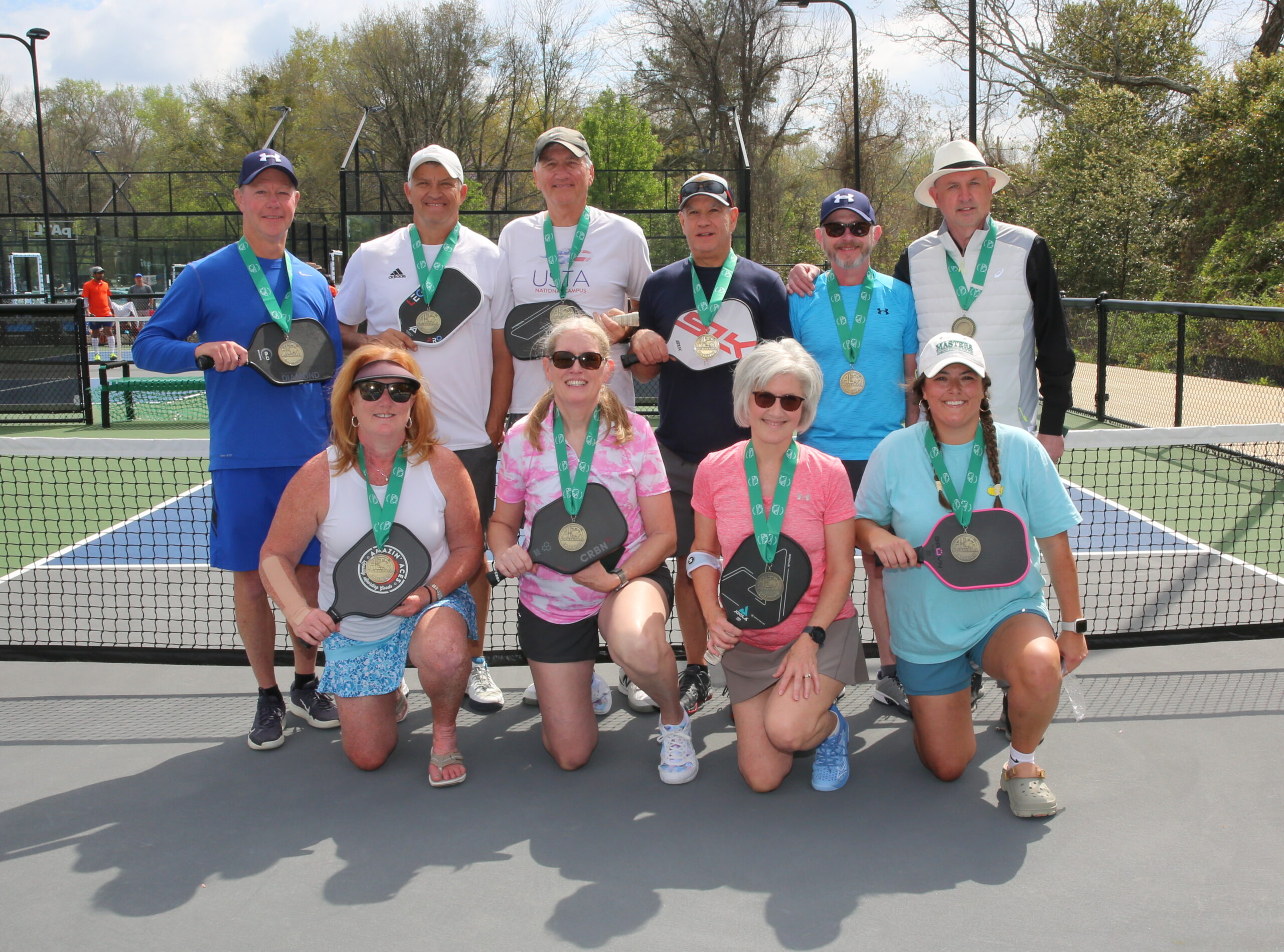Pickleball continues to amaze with its meteoric rise over the last five years. The Wall Street Journal even named it the fastest-growing sport in the country and according to Pickleball Insights, Georgia is among the top 10 states for pickleball enthusiasts.
“It’s been interesting to see that,” said Emmy Powell, Atlanta Lawn and Tennis Association (ALTA) marketing director. “We’re seeing, especially throughout the city of Atlanta and in other outlying areas, that if tennis courts have gone unused, especially in a neighborhood, then you’re seeing these HOAs convert them to pickleball courts and then they’re being used.”
Sharing the courts
There’s a little static among racquet sports. Sometimes there’s an “us vs. them” mentality around court usage.
“There’s definitely a blend of people. There are tennis people that can’t stand the pickleballers and the pickleballers who can’t stand the tennis players,” said Powell adding that there’s a growing faction of those who love both sports.
ALTA hasn’t done research into why one community keeps up with tennis while others falter but it agrees that using the space for physical activity is a win for everyone. And even though tennis may be waning in other areas, it’s still popular in metro Atlanta. But pickleball has found its footing and spaces designated solely to that sport have eased a lot of tension.
“That’s the plus side that they get used,” said Powell. “I do feel like the clubs and facilities and parks have done a really nice job of maintaining the tennis courts and making them available. So that you’re not always constantly battling with those who are trying to go out and play pickleball.
“We’re still seeing tennis growth. So, while some may think that tennis participation is on the decline. It’s not with us. We’re still the largest local recreational tennis league in the world,” she explained.
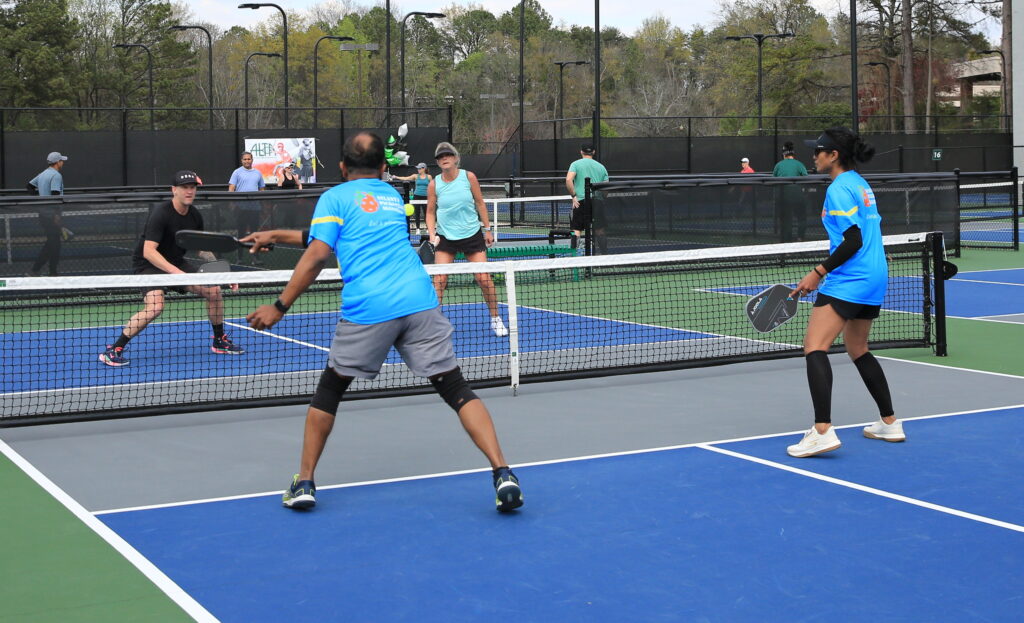
ALTA’s 90th anniversary
“We started as a nonprofit in 1934 and we’re still nonprofit,” said Powell. “We basically run tournaments and that’s why it gets a little confusing because we just had the 50th anniversary to commemorate league play as it is today.”
She said the organization converted to a league system with five lines of doubles.
“We’re a doubles-only league except for the juniors. They do play some singles with the juniors,” she said.
Since its inception, ALTA has added senior leagues of players 55 and older and leagues with different skill levels.
“During the housing boom of the 70s and 80s, that’s really when ALTA kind of turned the corner,” she said. “ALTA became successful because of all the swim and tennis [facilities] that were being built [in housing developments].”
Others say the popularity of ALTA drove the developers to add tennis courts. But the chicken and egg argument shows that the suburban lifestyle called for outdoor recreational opportunities.
“We have people that can tell you stories that they’ve been with their tennis team for decades,” said Powell. “It used to be, you move in, and someone would literally come and knock on your door and ask you to play tennis.”
Back then, it was kind of an offer you couldn’t refuse.
“If you didn’t [sign up], they’d bring you a racquet and pick you up the next day for your match,” Powell said with a chuckle. “You’re going to go out and play. It became a culture and so much of a social organization.”
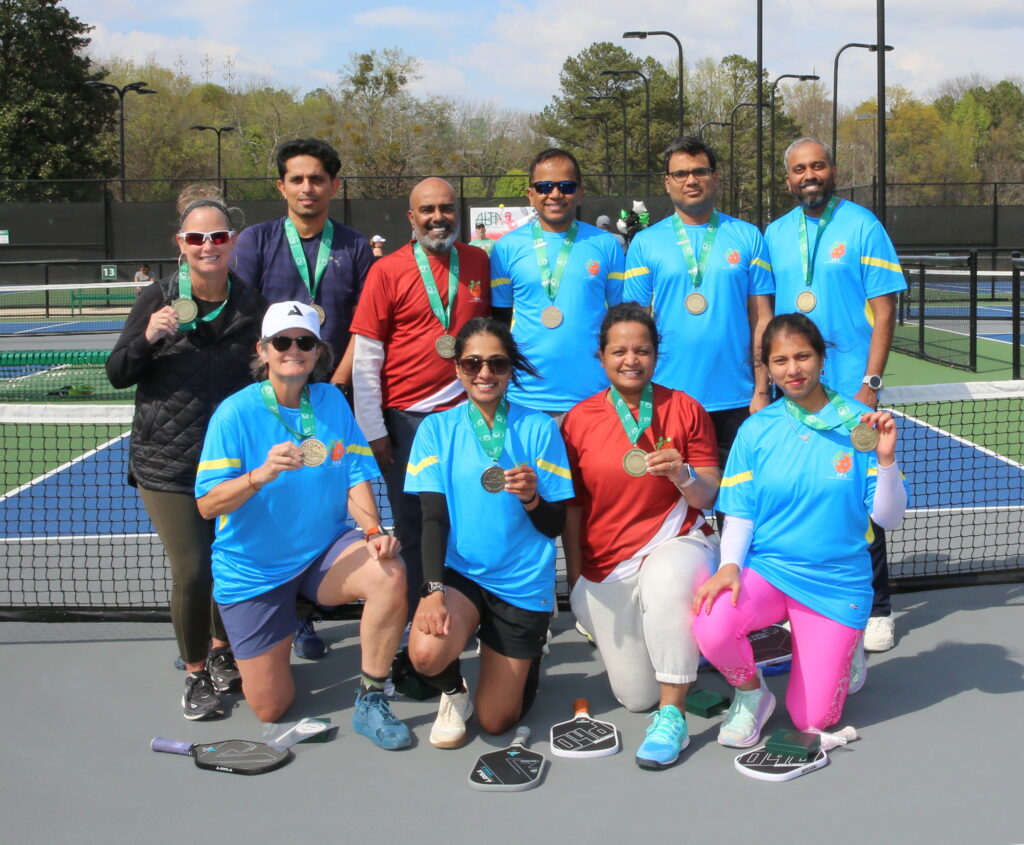
A sport for everyone
Powell said as strong-arm as it may seem from today’s perspective, it brought people together regardless of skill level.
“The nice thing about it is that you can be an ex-college player and come in and play at the AA-1 highest level. You could be a beginner and play at the lowest level,” she said. “It’s nice because it’s a team concept. That’s the difference between us and USTA. Players move up and down as a team.”
If a player got much better than the rest of the team in USTA, they’d have to move to another team. Although ALTA offers play in all four seasons, the cold of winter and the heat of summer drive the numbers higher in spring and fall.
“It’s just a little different in the way it’s done,” she said. “We run 77 different leagues in the spring and in the fall that cover everybody and it’s still just a really busy time.”

Adding pickleball into the mix
Although pickleball has many similarities to tennis, it really is a different sport.
“We’re trying not to just take the ALTA model and just plug it into pickleball,” said Powell. “We’re evolving. We had a very successful summer season of 2023 and we launched with about 4,800 players.”
ALTA also had a winter league that began in January. The summer season for 2024 began in June and wraps up in August.
“It’ll run for seven weeks and then there’ll be city finals after that,” she said. “And this year our pickleball paid membership is 7,840.”
As ALTA gets more involved with pickleball, it’s looking to fix some past mistakes – like having league members in closer proximity to each other and the facilities.
“Sometimes you can’t help it because you’ve got certain levels in certain areas,” said Powell. “That’s kind of the thing that will make stuff not be successful because people do not like to drive more than half an hour if they can help it in it.”
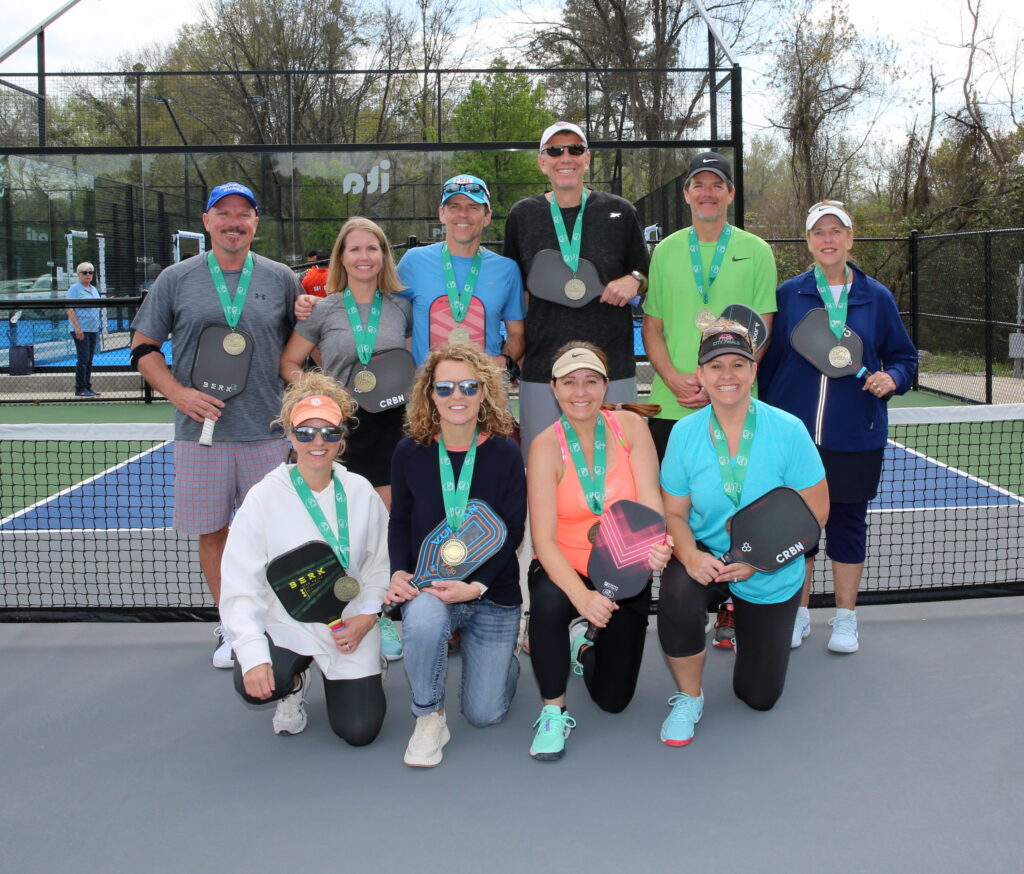
Volunteers make the difference
Although ALTA has a huge number of members, it doesn’t have a lot of paid staff.
“We have five staff members and I’m the only one who’s full-time,” she said. “Volunteers are the backbone of our organization that’s what makes everything so successful.”
Powell added that volunteers keep costs low.
“You only have to pay $30 for an ALTA membership for the entire year and you could play as many as 14 leagues,” she said. “There have been other smaller organizations in the Atlanta area that have tried to pull off pickleball leagues and they have not succeeded.”
Like just about everyone else involved with pickleball, Powell believes the sport has staying power and right now is just the beginning.
“We just kind of felt like the time was right to offer something else to the members, especially the pickleball players who wanted something a little bit more competitive,” she said. ”Some people think we have a brick-and-mortar building or own a tennis facility. But really what we do is just facilitate league play.”
Pickleballers are a diverse bunch
Tony Hull played Division One tennis in college and then kind of let racquet sports fizzle out of his life.
“I was growing up eating, sleeping, thinking, dreaming of tennis, but as I grew older, I lost interest decades ago,” he said. “I really enjoy basketball, so I let that fill that competitive hole.”
About two years ago, he picked up a tennis racquet and it was like riding a bike. Shortly after that, someone handed him a pickleball paddle and he was hooked.
“It scratched the itch that competitively this old competitor athlete had,” he said. “Besides, it’s less stressful.”
Hull plays at ALTA’s highest level as well as in the Professional Pickleball Association (PPA) tour. Even though the tours can be taxing, Hull says pickleball came naturally to him.
“As a general rule of rec play, what most people would enjoy is that anyone can play it. It’s easy to pick up and the rules are easy to learn,” he said. “But just like anything else, when you get to a higher level of player, it gets harder. When you’re in the top 10 players in the world, it’s not easy anymore.”
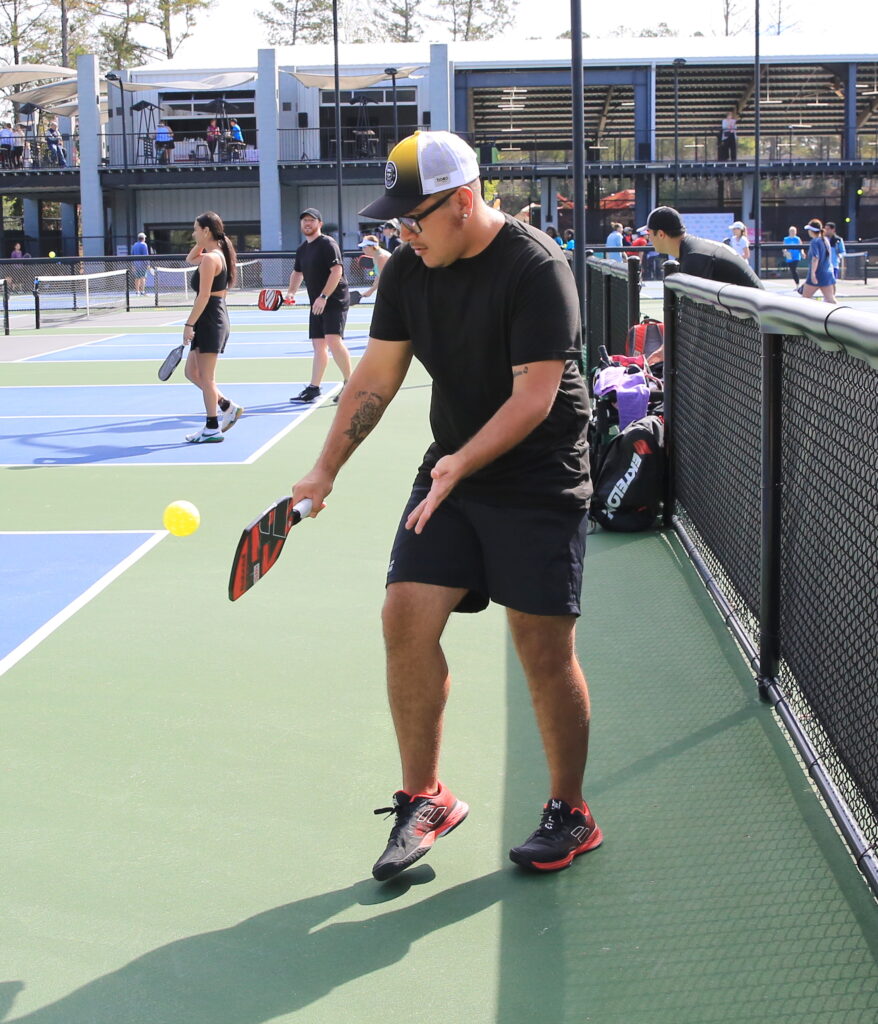
The joy of pickleball
Rich Austin has played tennis with ALTA for about 35 years.
“When pickleball started about six years ago, I was introduced to it by some of our tennis friends,” he said. “I thought it was a strange name for a game. But I guess if you look at the history. It’s been around since the seventies, I guess it started in Seattle somewhere. And a lot of people remember that they played it indoors at recess when it would rain.”
He said when it started to catch on in Atlanta a few years ago, nobody knew what to expect of it.
“It’s so easy to pick up and it’s so social,” he said. “I tell people on my tennis team that I laugh more in a game of pickleball in five minutes than I do an entire match sometimes in tennis.”
Why? Austin explained that the smaller court makes play less physically taxing. Players are also much closer to their opponents and it’s easier to converse. And there are often so many great points that he can’t help but comment and cheer everyone on.
“And most of the time you end up rotating partners unless you’re playing a tournament,” he added.
He says that many players joke around, and they don’t realize how much exercise they’ve gotten until they check their steps.
“My son gave me a Garmin watch that counted my steps. I found out that I take more steps in pickleball than I do in tennis,” he said. “I feel as though I get as good of a workout as I do with tennis.”
Even though he’s not a coach, Austin said he believes it doesn’t matter if you take up tennis first or pickleball.
“Each sport helps condition you for the other,” he said.
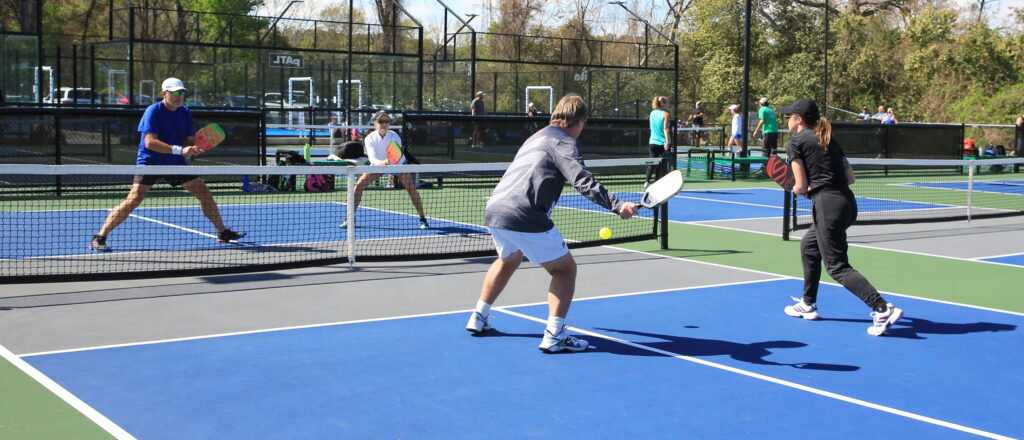
A love for the game
Bebhinn “BB” McMichael grew up playing volleyball, but about six years ago, she was at her best friend’s aunt’s birthday party and a pickleball game broke out. Even though she had no idea what the game was, she went along.
“They had two really nice courts in her neighborhood, so she had been playing for a while,” said McMichael. “We all went over there and started playing and we were hooked.”
That turned into nearly weekly play – depending upon everyone’s schedule.
“The more you play, you start getting into the fine details and the techniques and the skills,” she said. “At first you’re just hitting the ball hard trying to win.”
As she grew with pickleball, McMichael wanted to learn more.
“I started meeting more people and going to different courts. I kind of realized that there’s more to the sport, like the thinking about the drops, the strategy,” she said. “I didn’t know how to get better at that point, but I knew I wanted to.”
A few years ago, she Mark Price at a charity tournament and was invited to watch him play.
“As I watched them play, I was like a kid in the candy store. I was like, ‘Oh, that’s what I want to be able to do,’” she said. “I wanted to learn to play like them and they were kind enough to invite me to play a few games with them. And honestly, I’ve never played so well in my life.”
McMichael ended up enrolling in Price’s camp and signed up for private lessons.
“It was so exciting. I played really well and that was the start of my journey to be better,” she said.
McMichael got her certification as an instructor in December.
“I’ve been coaching a little bit for about a year and a half now. I started out doing it for free just helping people, friends of friends,” she said. “I’ve gotten better too. So, it’s been kind of a win-win. I teach classes, I do lessons and I also work at a pickleball club in Roswell.”
To learn more visit altatennis.org.
Photos by: Laura Barnard

